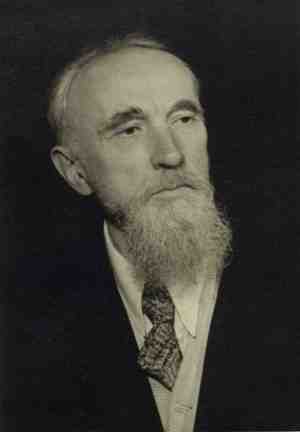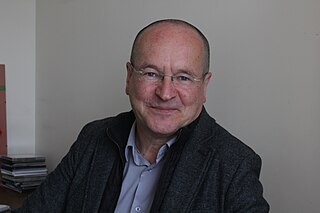
Skyforger is a heavy metal band from Latvia which was formed in 1995 out of the remains of doom metal band Grindmaster Dead.

Imants Kalniņš is a Latvian composer, musician and politician. Having studied classical and choral music, he has written seven symphonies, several operas, oratorios, cantatas, choir songs, a lot of movie and theater music. However, he is generally best known for his rock songs and is to be considered the first composer of intellectual rock music in Latvia. In 2021, Kalniņš received the Grand Music Award for lifetime achievement.

A daina or tautas dziesma is a traditional form of music or poetry from Latvia. Lithuanian dainos share common traits with them, but have been more influenced by European folk song traditions. Latvian dainas often feature drone vocal styles and pre-Christian themes and legends, and can be accompanied by musical instruments such as Baltic psalteries . Dainas tend to be very short and are usually in a trochaic or a dactylic metre. Dainas are being translated into English by Latvian American Ieva Auziņa-Szentivanyi.

The kanklės is a Lithuanian plucked string instrument (chordophone) belonging to the Baltic box zither family known as the Baltic psaltery, along with the Latvian kokles, Estonian kannel, Finnish kantele, and Russian gusli.

Pēteris Vasks is a Latvian composer.

Kokle or historically kokles (kūkles) is a Latvian plucked string instrument (chordophone) belonging to the Baltic box zither family known as the Baltic psaltery along with Lithuanian kanklės, Estonian kannel, Finnish kantele, and Russian krylovidnye gusli. The first possible kokles related archaeological findings in the territory of modern Latvia are from the 13th century, while the first reliable written information about kokles playing comes from the beginning of the 17th century. The first known kokles tune was notated in 1891, but the first kokles recordings into gramophone records and movies were made in the 1930s. Both kokles and kokles playing are included in the Latvian Culture Canon.

Inese Galante is a Latvian soprano opera singer. Galante is known for a great beauty of tone, nuanced pianissimos and sensitive command of dynamics and colour. Her performance of Vladimir Vavilov's Ave Maria, from her "Debut" album (1995) attracted worldwide interest in the piece.

The culture of Latvia combines traditional Latvian and Livonian heritage with influences of the country's varied historical heritage. Latvia is divided into several cultural and historical regions: Vidzeme, Latgale, Courland, Zemgale and Sēlija.

Anna Krauja Čena is a lyric soprano from Latvia. Born in Riga, Anna Krauja was elected International Mini Miss in a competition at the Latvian National Theatre in 1993 and was the first Latvian child to win this award. At her appearance she sang a song by Latvian composer Imants Kalniņš and received also the audience award. This success encouraged her already in childhood to become a singer.
Pauls Butkēvičs is a Latvian film and theater actor, best known for starring in I Remember Everything, Richard and Elpojiet dziļi!. He also starred in Ilgais ceļš kāpās, Rallijs (1978), Nepabeigtās vakariņas (1979), Mirāža (1981) and Aija (1987).

Jānis Mediņš was a Latvian composer.

Lūcija Garūta was a Latvian pianist, poet and composer. She is mostly known for composing the cantata Dievs, Tava zeme deg! in 1943.

The Latvian National Opera and Ballet (LNOB) is an opera house and opera company at Aspazijas boulevard 3 in Riga. Its repertoire includes performances of opera and ballet presented during the season which lasts from mid-September to the end of May. During a typical season, LNOB presents almost 200 performances, including, on average, 6 new productions. The largest is the Great Hall which houses 946 seats, while the smaller ones – the New Hall, the Dress Circle Hall (Beletāžas zāle) and the Red Hall – have a maximum seating capacity of 338, 170 and 100 respectively. LNOB employs a total of approximately 600 people. The building is located on the bank of the Riga Canal, near the Freedom Monument. As of 5 November 2019, the chairman of the board is Egils Siliņš, a world renowned opera singer. The chief conductor since 2013 is Mārtiņš Ozoliņš who is also an associate professor at the Jāzeps Vītols Latvian Academy of Music. The artistic director since 1993 is Aivars Leimanis.

Alfrēds Bruno Jānis Kalniņš was a Latvian composer, organist, pedagogue, music critic and conductor; the founder of national Latvian opera. Kalniņš is primarily remembered for his national opera Baņuta (1920).

Rodrigo Fomins better known by the stage name Igo is a Latvian singer, poet and composer of rock and other music styles.

Valdis Muktupāvels is a Latvian ethnomusicologist, composer, musician, teacher and doctor of art criticism.
Mariss Vētra was a Latvian opera singer, stage director, educator, and writer.
Andrejs Jurjāns was a Latvian composer and musicologist. He was Latvia's first classical composer, having composed instrumental pieces and cantatas. Jurjāns also studied and collected more than 6000 pieces of Latvian folklore, among them 3000 songs, which he compiled in six books, called Latvju tautas mūzikas materiāli.
Jānis Ilsters was a Latvian botanist autodidact, teacher, folklore collector and poet. Often cited as the "first Latvian botanist" as he has written the first textbook of botany in Latvian "Botany for common schools and self-study. Elementary course.". He has published some works under the pseudonym "Daugavietis".

Sudden Lights is a Latvian indie rock band, founded in 2012 in Riga. The band consists of vocalist Andrejs Reinis Zitmanis, drummer Mārtiņš Matīss Zemītis, guitarist Kārlis Matīss Zitmanis, and bassist Kārlis Vārtiņš. In February 2023, the group won Supernova 2023 with the song "Aijā" and represented Latvia in the Eurovision Song Contest 2023.



















